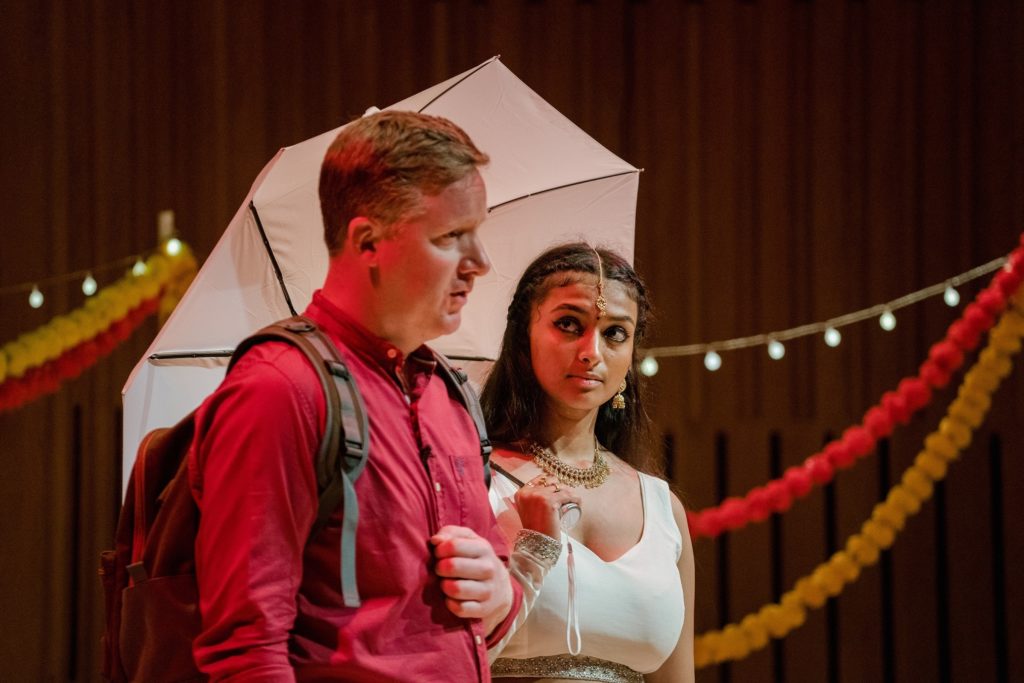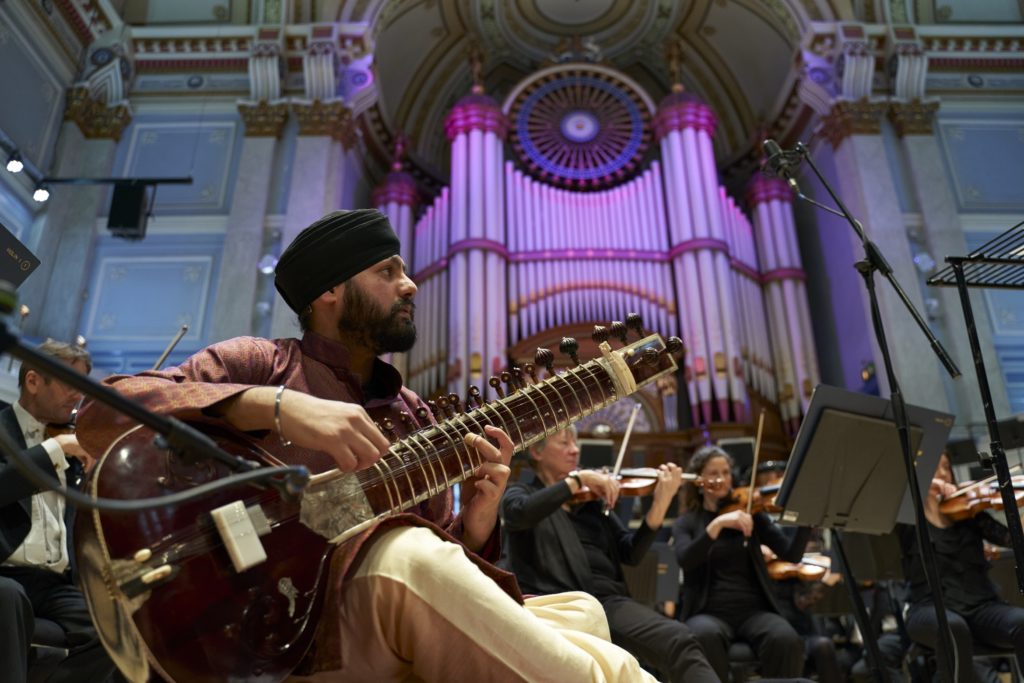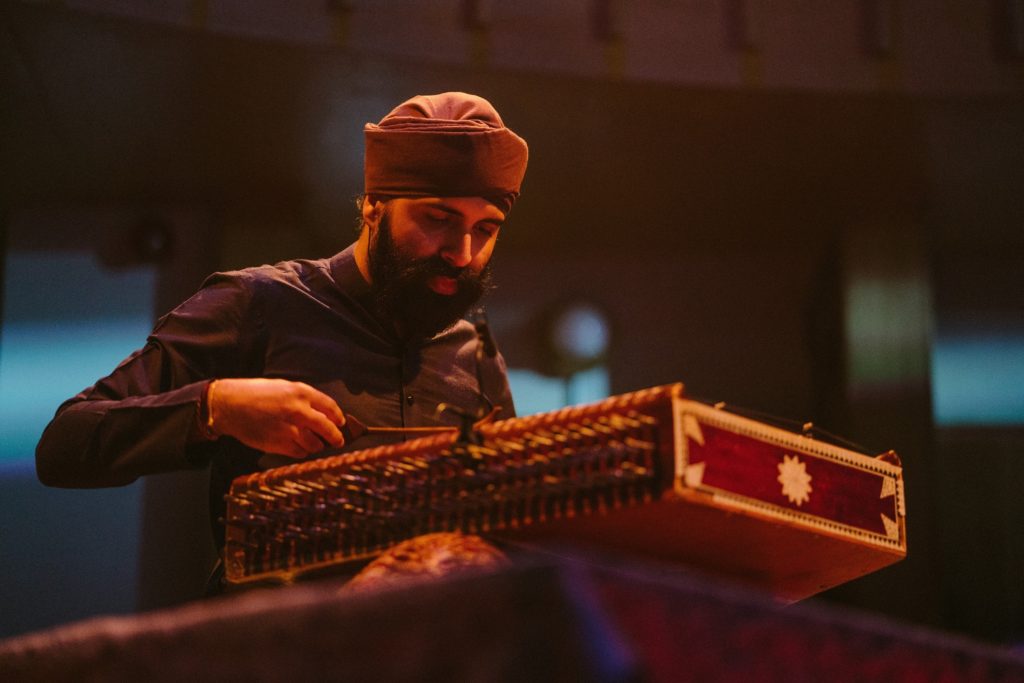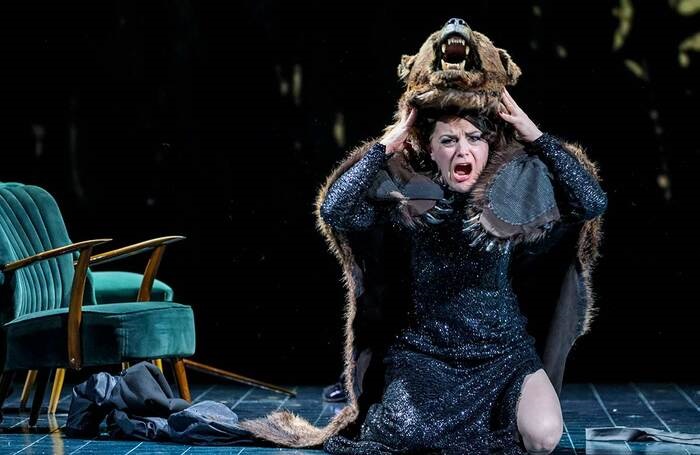
OPERA North originally billed this collaboration as ‘Monteverdi reimagined’. In the absence of much explanation, our own imaginations were allowed to run wild with fears of an East-West confrontation, with Monteverdi’s magic – as near as we regularly get to the fountainhead of opera, after all – irreparably diluted and the Orpheus myth literally shot to hell.
That was the gamble these companies undertook. A brief press release sent to all punters more recently looked like special pleading. One feared the worst. The reality is much different.
For seekers after truth – as we all must be when we undertake to see a new production – there turn out to be many pleasing parallels between music of the Baroque and that of the sub-continent.
It is often forgotten that Venice sits handily at the crossroads of ancient trade routes between East and West. Modal systems of music, typified by Gregorian chant, were another obvious link between the two, surviving as they do in Indian raga procedures, even if some have been gradually ironed away in western tonal patterns.
As Neil Sorrell points out in an exceptionally penetrating programme note, the voice was central to Monteverdi’s musical imagination and remains so in Indian music. Indian players routinely expect to be able to reproduce vocally what they express through their instruments.
To that extent, western musical education has been straitjacketed, not least in the dichotomy between ‘classical’ and ‘pop’, the partial result of the separation of vocal and instrumental musics. For a full rapprochement, perhaps we in the West need to broaden our approach.

This production, which has been several years in the making and delayed by Covid, forcefully reminds us of these parallels. Its moving spirit as composer – apart from Monteverdi – is Jasdeep Singh Degun, who worked in close co-operation with Baroque ace Laurence Cummings.
Singh Degun’s work adds almost an hour to Monteverdi, although the result morphs seamlessly between the two. He allows the various Indian singers to use their own languages so that we have eight, Hindu and Urdu foremost among them, jostling alongside Striggio’s Italian. All are helpfully side-titled.
The staging is in the hands of Anna Himali Howard, whose task is undoubtedly lightened by having Leslie Travers as her set and costume designer. Together they work out a way of connecting the real world with the underworld, the living with the dead.
The professed aim of their co-production is to move from a celebration of love through the darkness of grief-laden despair to the eventual rekindling of hope.
Nothing particularly unusual there, you may suppose, except that their true goal is to communicate the universality of the Orpheus myth via musical means far more wide-ranging than Monteverdi ever could have envisaged.
Travers’s set is the back garden of a semi-detached suburban house, with all the instruments arranged down the sides of a ‘V’ which opens embracingly towards the audience. So Cummings’ harpsichord rubs shoulders with Singh Degun’s sitar, Kirpal Singh Panesar’s bowed esraj with Emilia Benjamin’s lirone, while Céline Saout doubleson harp and the zither-like swarmandal and Vijay Venkat covers no less than five instruments from both camps.

There are 19 players in all. From a western standpoint, the juxtaposition of instruments is undeniably exotic, adding a magical, other-worldly aroma, while the extraordinary Indian percussion supplies positively addictive momentum.
In the first half (Acts 1 & 2), the garden is the venue for the wedding of Nicholas Watts’s Orpheus and Ashnaa Sasikaran’s Eurydice, with friends and relatives happily congregating with candles and balloons. Their joy is cut tragically short with the arrival of Kezia Bienek’s Silvia, carrying Eurydice’s red and gold sari, signifying her demise.
After the interval, the sky is black, the buildings expunged and the profuse flowers (‘head gardener’ Ali Allen) disappears, resurfacing only when Orpheus returns home as the Apollo of Singh Panesar offers spiritual relief from his pain.
The earlier guests have become spirits in the underworld, which adds a touch of the uncanny. Choral traditions are slight in India, but all the voices meld well, and the differing solo vocal ornamentations sound complementary rather than antagonistic, implying compromise on both sides.
Watts began nervously but gradually blossomed on opening night until reaching a peak of emotional resonance in ‘Possente spirto’; Sasikaran makes a charming, gentle Eurydice. Bienek is a forthright Silvia and Chandra Chakraborty a lively Proserpina. Kaviraj Singh offers a resolute Caronte and Singh Panesar an equally persuasive Apollo; significantly, both also play in the orchestra. Dean Robinson’s Pluto strikes the right conciliatory note.
Just about the only mild disappointment is the dancing, which is largely circular and rudimentary. But overall, this is a happy conjunction of two powerful traditions, a cross-fertilisation that promises further musical riches.
Review by Martin Dreyer
Further performances on tour in Newcastle, Nottingham and Salford until November 19.

